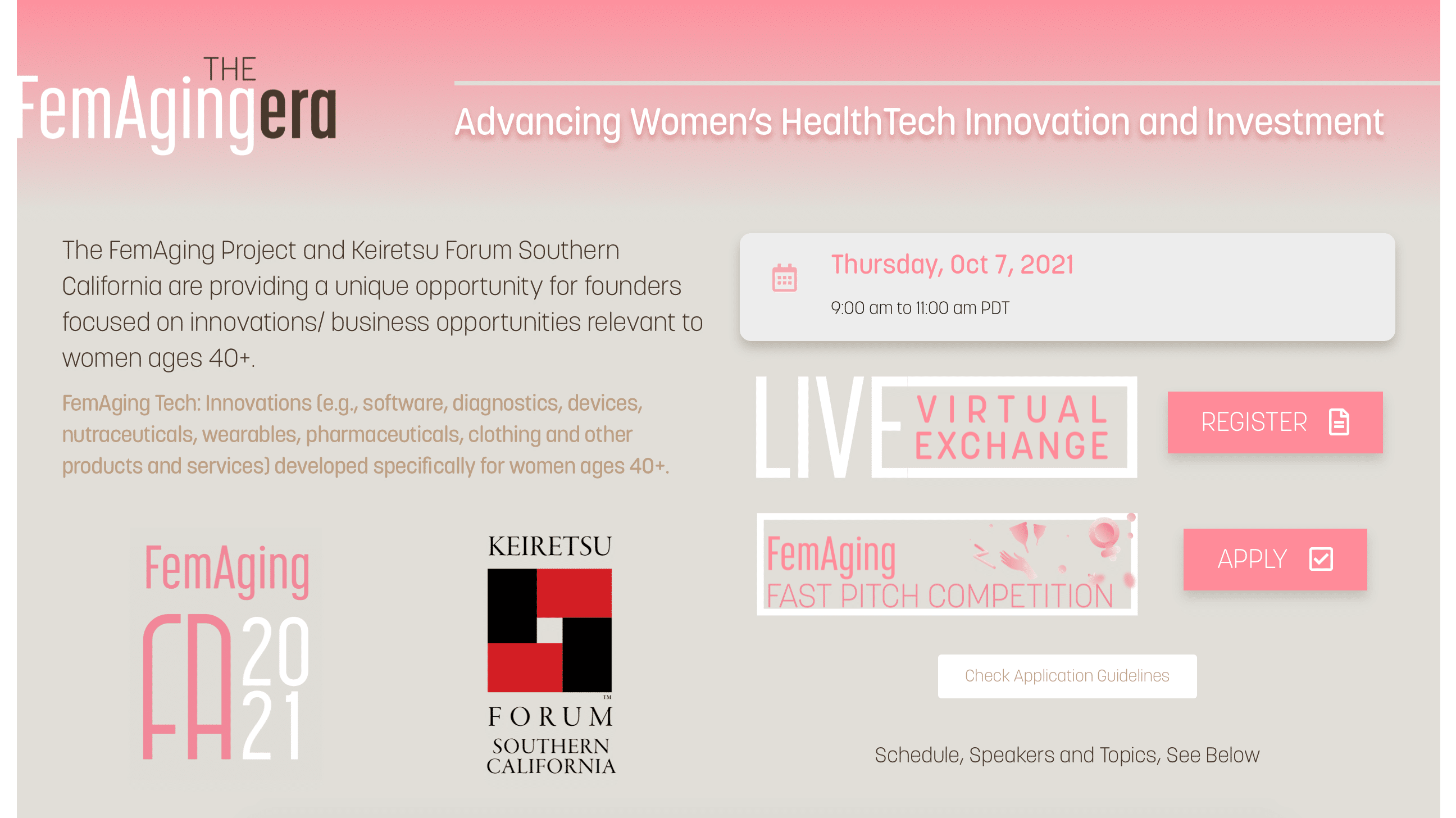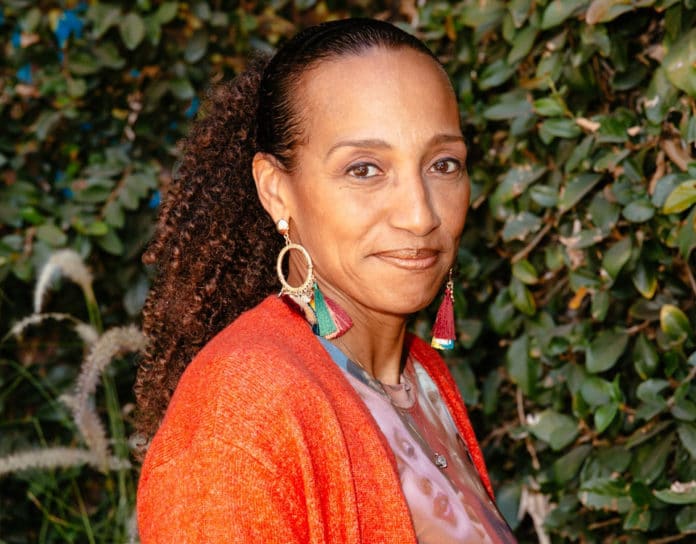It’s the lifecycle stage that no one wants to talk about: menopause – despite the fact that by 2025 over 1 billion women globally will experience it. That’s 12% of the world’s population dealing with myriad symptoms such as hot flashes, fatigue, vaginal dryness, insomnia, low libido and depression. Not to mention the increased risk of osteoporosis, breast cancer, heart disease and cognitive decline for postmenopausal women.
And yet, despite all the technological progress achieved in healthcare, there has been little innovation in aging women’s health and women are suffering as a result. They have distinct health issues that aren’t readily addressed by mainstream companies, yet they represent a growing demographic of 53 million — a growing, diverse and economically powerful group. Investing in women’s health represents the next frontier in healthcare solutions. More than ever the lack of real solutions is increasing the number of women in STEM and entrepreneurism which is leading to women’s health innovations. Women’s health is a $1T market that has yet to be adequately addressed because women historically and systematically have been excluded from healthcare research and innovation. As recently as the mid-’90s, men were still being used for estrogen-related studies to provide hormone related solutions for women. “Women are not just small men — male and female bodies differ down to a cellular level,” says Criado Perez, in her book Invisible Women. Add to this the fact that 49% of US counties lack a single OB-GYN and it’s hardly surprising that apparently just 7% of women get the help they need to manage their symptoms.
The lack of real solutions is increasing the number of women in STEM and entrepreneurism which is leading to women’s health innovations
Now is the right time. Femtech (software, diagnostics, products and services being used to improve women’s wellbeing) is one of the fastest growing areas in the medical industry, with research consultancy Frost & Sullivan forecasting it to be worth $50 billion by 2025. And it’s not surprising that women are leading the way with 80% of FemTech startups having a female founder. But FemTech overly focuses on addressing the health of women in childbearing years. In 2020, FemAging HealthTech Report revealed that many women between the ages of 40 and 65 are struggling with menopause symptoms, but not seeking help. “Older women of all backgrounds are clamoring for products and services that truly meet their most vital and sensitive health, wellness and well-being needs — especially in the wake of the COVID-19 crisis,” said Denise Pines, co-founder of the FemAging Project.
 To help, The FemAging Project and Keiretsu Forum, one of the largest angel investment networks in the world, have partnered to bring together physicians, investors, innovators and entrepreneurs to discuss, illustrate and explore opportunities and challenges during their virtual event “The FemAging Era: Advancing Women’s HealthTech Innovation and Investment” to be held on October 7, 2021 at 12:00pm EST/9:00am PST. Additionally, the event will provide innovators with the opportunity to pitch their products and services designed for women ages 40+ to angel investors and venture capitalists. “There is a $600 billion opportunity for HealthTech innovators and investors to develop creative strategies for this burgeoning demographic,” says Pines.
To help, The FemAging Project and Keiretsu Forum, one of the largest angel investment networks in the world, have partnered to bring together physicians, investors, innovators and entrepreneurs to discuss, illustrate and explore opportunities and challenges during their virtual event “The FemAging Era: Advancing Women’s HealthTech Innovation and Investment” to be held on October 7, 2021 at 12:00pm EST/9:00am PST. Additionally, the event will provide innovators with the opportunity to pitch their products and services designed for women ages 40+ to angel investors and venture capitalists. “There is a $600 billion opportunity for HealthTech innovators and investors to develop creative strategies for this burgeoning demographic,” says Pines.
Registration and application for FemAging Era and Fast Pitch Competition can be accessed at https://www.femaging.com/femagingera/.
Want to read more about Denise Pines? Read her AGEIST profile to learn about how she is championing women’s health.


